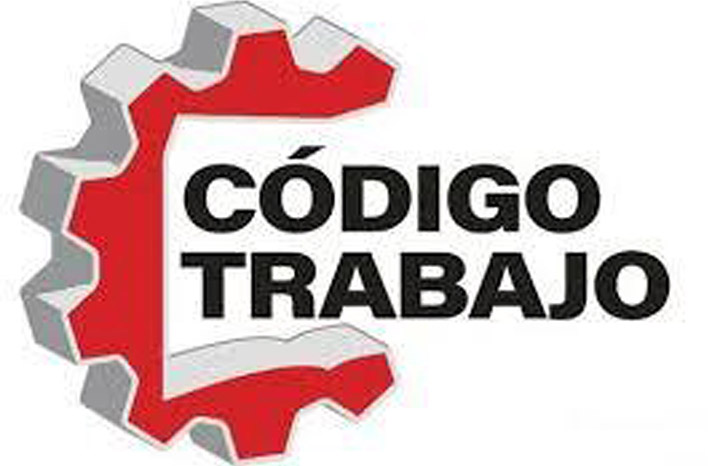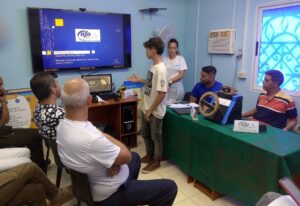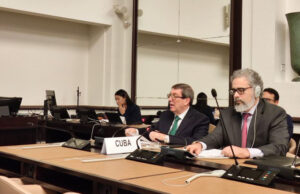The Construction Materials Company of Ciego de Ávila (Avilmat) was the venue this Monday for the provincial pilot assembly that marks the start of the discussion process for the draft of the new Labour Code in Ciego de Ávila, a democratic exercise of great magnitude for the trade union movement.
This meeting, which will serve as a model for the development of the meetings in the 10 Avilanian municipalities, was attended by trade union leaders, legal specialists and workers, who meticulously analysed the extensive legal document.
Mariset Hernández Rodríguez, member of the Secretariat of the Central de Trabajadores de Cuba (CTC) in the province, highlighted the importance of this piloting session, as it will serve as a basis for its development in the municipalities.
In the 10 municipalities simultaneously their pilot assemblies will be held, and from here each of the trade unions and general secretaries of the municipal CTCs will be able to have the experience of how this process will develop in each of the work collectives, added the official.
Hernández Rodríguez emphasised the relevance of the new legal body, describing it as novel and broad, which incorporates the figure of non-state workers who were previously not conceived in our Code and who will now have more guarantees and other rights.
For his part, Pedro de Jesús González Ramírez, legal advisor of the provincial CTC, explained from a legal perspective that this regulation “is well-being for the workers, it is a benefit for all” and that is why it is crucial that the norm comes out with the criteria of all the workers.
Among the most significant novelties, González Ramírez cited the increase in the working age: young people will not enter at 15, 16 years old, they will enter at the age of majority with 18 years.
Furthermore, he highlighted a substantial change in the relationship with the trade union: “because it is no longer about hearing the trade union’s opinion, it is about taking it into account to accept what the trade union says, which is a big novelty”.
Yudenis Hidalgo López, general secretary of the Provincial Bureau of the Construction Trade Union, informed that the document has 277 articles, 12 special provisions, 12 transitory and 6 final ones.
She recalled that to favour the popular consultation, a tabloid was published available to all since the first of September.
This is the most important process of the trade union movement that is being developed during the second semester of the year and forms part of the organic process of the XXII Congress of the CTC, affirmed Hidalgo López, and urged every worker to express their proposals to perfect the draft bill.
Regarding the selection of Avilmat for this pilot assembly, Roberto Pérez García, member of the Secretariat of the provincial CTC, explained that it is a company with comprehensive results, a strong trade union movement and preparation of the base trade union leaders, which makes it an ideal model to extract experiences.
During the discussion, specific topics of the draft bill were addressed; Niurka Ferrer Castillo, member of the Provincial Committee of the PCC and General Secretary of the CTC in the province, exemplified with one of the new regulations: “It is established that the duration of the working day for those who exercise multiple jobs cannot exceed 13 hours daily, which is a new modality”.
The development of the assembly was characterised by order and methodology, with interveners being asked to refer to specific paragraphs to enrich the debate.
With the popular consultation of the draft Labour Code by all work centres in the country, the criteria of the workers will be gathered for the formation of a law that will update the Cuban legal labour framework.




